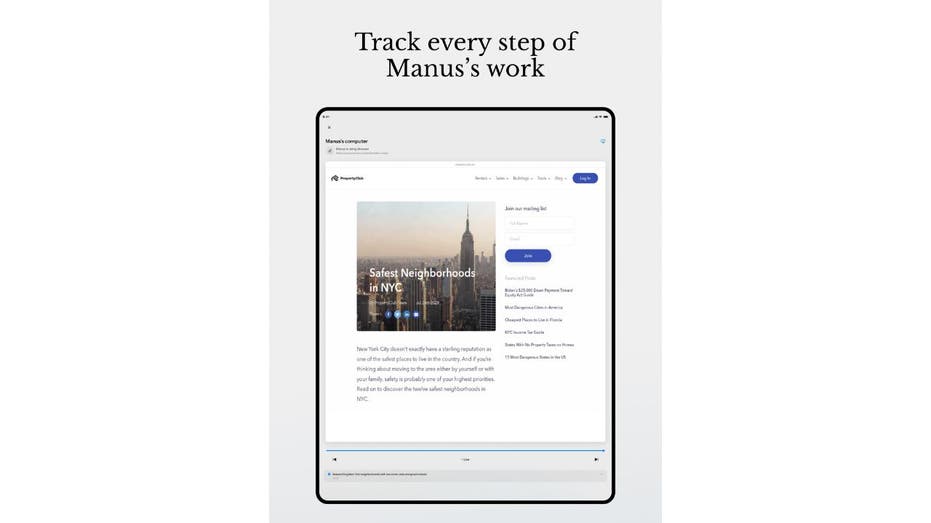The Emergence of Manus: A Game-Changer in AI Technology
If you haven’t heard the buzz about Manus yet, you’re in for a surprise. This groundbreaking AI model, developed by the Singapore-based company Butterfly Effect, is being hailed as one of the first truly autonomous AI agents. Unlike traditional chatbots, Manus has the capability to conduct its own research, make decisions, and execute plans with minimal human intervention.
While this innovation is undoubtedly impressive, it raises significant concerns about privacy and security. Whether you are excited to explore this new AI frontier or prefer to exercise caution, understanding the implications of Manus on personal data and digital safety is crucial.
The Privacy Paradox: Innovation vs. Security
The conversation around data privacy isn’t new. Several class-action lawsuits have emerged against tech companies for scraping personal data for AI training purposes. One notable case claims that OpenAI has been using “stolen private information, including personally identifiable information (PII) of millions—including children—without their informed consent.” Moreover, many companies are known to sell or share user data with third parties, further complicating the privacy landscape.
For instance, X has been utilizing personal data to train its AI, Grok, while also sharing user information with external entities. This means that even if you choose not to use Manus AI, your personal data is likely already circulating within datasets used to train AI models.
Data Breaches: Real Risks in the Age of AI
The issue at hand is data privacy and security. Many AI companies collect various forms of personal information—names, email addresses, home locations, social media posts, and even photographs—and store them in large databases for training purposes. If these databases are inadequately protected, they become prime targets for hackers. Think of them as digital “honey pots” that attract cybercriminals seeking sensitive data.
This year, another AI company, DeepSeek, faced a significant data leak that exposed over a million sensitive records. When such information is compromised, it often ends up on the dark web, where identity thieves and scammers can easily obtain it. The fallout can range from identity theft and impersonation to a barrage of spam calls, phishing emails, and targeted scams.
Prompt Injection Attacks: A Hidden Danger
Data leaks aren’t the only threat posed by autonomous AI systems. Even when information is secure, it can be manipulated in ways that are difficult to detect. One emerging concern is prompt injection attacks, where attackers embed hidden commands within seemingly harmless text—like a website biography or a social media post. If an AI reads this text during its training or browsing, it might inadvertently follow these hidden instructions, potentially leading to unauthorized data access or alterations in its behavior.
Understanding Manus: The Risks of Autonomy
What sets Manus apart from other AI tools is its autonomous nature. This means it can act independently, follow links, read content, and make decisions without human approval. While this level of autonomy offers exciting possibilities, it also complicates the ability to detect when something goes awry.
If Manus encounters malicious content, it might unknowingly execute a hidden prompt, jeopardizing your data or altering its behavior without any clear signs of malfunction until it’s too late. Additionally, concerns have been raised about where Manus stores and processes data, with security researchers tracing some data back to servers in Shenzhen, China. This raises significant questions about surveillance and who might ultimately access your information.
The Risks of Using Manus: A Cautious Approach
Even if Manus is currently operating without scraping particularly sensitive data, the combination of its powerful automation, weak oversight, and questionable data practices renders it riskier than most AI assistants.
Here’s how you can protect yourself while navigating this evolving landscape:
1. **Exercise Caution with Manus**: Given its high level of autonomy and the uncertainties surrounding its privacy policies, it may be wise to hold off on using Manus until more information is available.
2. **Limit Your Personal Information**: With many companies trading personal data, consider withholding your information unless absolutely necessary.
3. **Remove Your Data from the Internet**: Take proactive steps to minimize your digital footprint. Set your social media accounts to private, adjust privacy settings, and request the removal of your information from data broker sites.
4. **Invest in Strong Antivirus Software**: Protect your devices against potential malware and adversarial attacks created by autonomous AI systems like Manus.
5. **Choose Privacy-Focused Services**: When sharing personal information is unavoidable, opt for companies that prioritize user privacy, such as using DuckDuckGo instead of Google.
6. **Keep Software Updated**: Regularly update your operating system, browsers, and security tools to minimize vulnerabilities that could be exploited by attackers.
7. **Enable Multifactor Authentication (MFA)**: This adds an essential layer of security to your accounts, making it harder for attackers to compromise them.
8. **Use Strong, Unique Passwords**: Consider employing a password manager to help generate and store complex passwords for each account, preventing a single breach from leading to broader security issues.
As we embrace the future of AI with Manus, it’s essential to remain vigilant about our personal data. Even if you never directly use Manus, your information could still end up in its training datasets.
Staying informed, taking control of your digital footprint, and choosing privacy-centric tools are the best ways to enjoy the benefits of innovation while safeguarding your personal information.
Do you believe that companies behind advanced AI agents like Manus should adhere to stricter privacy regulations and oversight? Share your thoughts with us!
For more tech tips and security alerts, consider subscribing to our newsletter. Stay safe out there!
